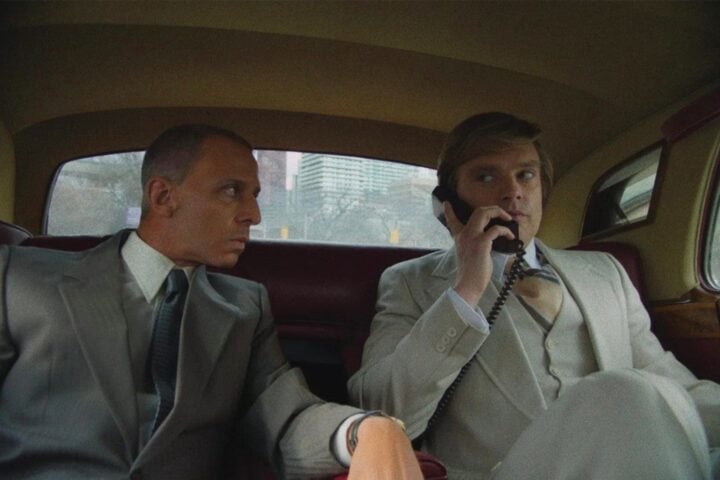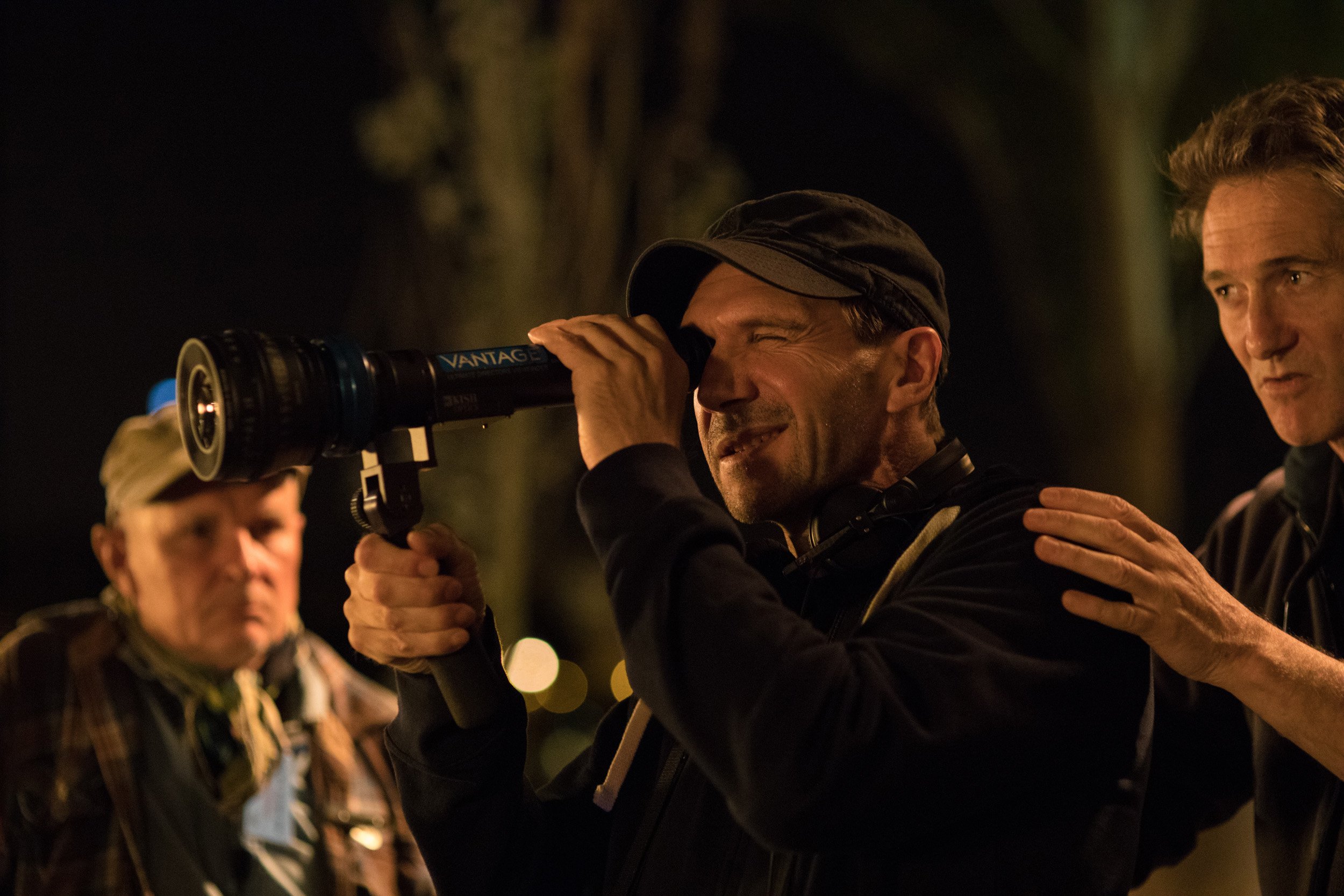Ant Timpson’s Come to Daddy is a crazed parody of the self-pity inherent in familial resentments. Norval (Elijah Wood) is a thirtysomething man who is invited by his estranged father, Gordon (Stephen McHattie), to meet him at his remote coastal cabin in a gesture of reconciliation. Norval and Gordon offer a pronounced study of contrasts: Gordon is a wiry, macho drunk who’s so bitter he seems to be losing his mind, while Norval is diminutive, vulnerable, somewhat fey, and on the wagon as a response to his own alcohol issues. In Gordon’s eccentric and gorgeous home, which resembles a lighthouse, the two men dance around the riddle of this reunion: Why does Gordan want to reconcile now?
Early on, it’s clear that Norval desperately wants Gordon’s approval, which Wood plays with a nakedness that gives the film an air of poignancy. The counterpoint to that poignancy is McHattie, who doubles down on Gordon’s irrational selfishness, giving a performance that’s both hilarious and eerily unpredictable. Wood and McHattie have stunning anti-chemistry, fashioning a sonata of loneliness and passive aggression out of silences, tics, and outbursts that eventually become violent. Timpson and screenwriter Toby Harvard have conceived Come to Daddy as a generational dramedy that goes spectacularly cuckoo, and the film’s joke is that things are much worse between Norval and Gordan than the heartbroken son imagines.
The tension between Norval and Gordon suggests a distillation of the differences between baby boomers and millennials writ large and broadly, with Norval as an over-sensitive man-child who lives with his mother, while Gordon is a lout who’s mourning his own irrelevancy. This contrast reaches a crescendo when Norval attempts to impress Gordon by lying about his knowing Elton John, which leads to a pair of resonant and intertwined punchlines. Gordon doesn’t exactly strike one as an Elton John fan, which underscores Norval’s cluelessness on the subject of working-class machismo, and Gordon also isn’t as out of it as he appears to be, calling Norval out on his deception with an acute and amusingly random sense of cruelty.
McHattie’s great gravelly voice renders regular words obscene and obscene words blasphemous. Later on, it’s truly disturbing when Gordon calls Norval a “cunt,” repeating the word as a mantra and bringing out into the open the contempt that’s been in the air from the start of the visit. Not long after this altercation, Timpson dramatically changes gears, springing a twist that’s out of the M. Night Shyamalan playbook and switching genres entirely.
Unlike many Shyamalan films, which seem constructed out of Mad Libs, Come to Daddy retains an emotional consistency. The film’s last hour could almost be Norval’s fantasy: a retreat from Gordon’s astonishing rejection. Come to Daddy structurally resembles Edgar Wright’s The World’s End, which became a lurid fantasy at the moment that its antihero’s illusions were shattered. After Gordon impugns Norval’s masculinity, the two men are plunged into a delirious underworld in which Norval must learn to be a killer, and in which he’s even provided with a new father figure, Brian, who’s played by Martin Donovan with a soothing energy that serves as a respite from McHattie’s guttural gesticulations.
By film’s end, Norval gets the reconciliation of his dreams at a considerable cost, though he never learns why his father sent for him in the first place. Come to Daddy has a tang of real sadness, suggesting that family is composed of a coterie of arbitrarily assembled strangers.
Since 2001, we've brought you uncompromising, candid takes on the world of film, music, television, video games, theater, and more. Independently owned and operated publications like Slant have been hit hard in recent years, but we’re committed to keeping our content free and accessible—meaning no paywalls or fees.
If you like what we do, please consider subscribing to our Patreon or making a donation.






